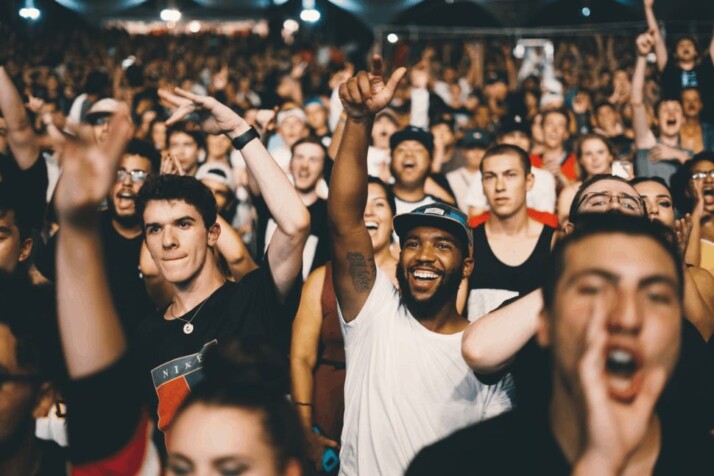Detail Author:
- Name : Kamryn Denesik
- Username : colten61
- Email : gabe.veum@yahoo.com
- Birthdate : 1994-03-12
- Address : 77845 Lillian Parkway Port Reginald, DC 75498-0564
- Phone : +1-731-365-7043
- Company : Greenholt, Hauck and Gleichner
- Job : Logistician
- Bio : Et qui quo voluptas eum non maxime. Consequuntur nemo in alias dignissimos natus. Hic est illo aut repellendus. Ut quos fugit soluta ipsa.
Socials
twitter:
- url : https://twitter.com/rollin9763
- username : rollin9763
- bio : Vero est aut culpa doloribus qui nulla. Sunt totam aut ut est. Iusto assumenda assumenda occaecati modi. Expedita nemo suscipit quidem ad numquam et tempore.
- followers : 3698
- following : 1395
instagram:
- url : https://instagram.com/hartmannr
- username : hartmannr
- bio : Eaque facilis iusto quis et. Ut sint rerum nam. Aut nulla rerum architecto.
- followers : 1181
- following : 2143
linkedin:
- url : https://linkedin.com/in/rhartmann
- username : rhartmann
- bio : Saepe qui quis facere est ut fuga.
- followers : 6977
- following : 2186
tiktok:
- url : https://tiktok.com/@rollin1196
- username : rollin1196
- bio : Sit ad ad sunt eos provident.
- followers : 5969
- following : 406
facebook:
- url : https://facebook.com/rollinhartmann
- username : rollinhartmann
- bio : Possimus ad reprehenderit excepturi fugit eveniet doloribus sed.
- followers : 3504
- following : 327
Have you ever paused to consider the incredible variety of human expression and how different groups of people present themselves to the world? It's really quite something, isn't it? For some communities, a particular way of dressing or adorning the body becomes a powerful symbol, a marker of who they are, very much a part of their identity.
We often hear whispers of cultures where beauty standards differ wildly from what we might see around us every day. There are groups, you see, where something as simple as the length of one's neck carries deep meaning, acting as a visual representation of heritage and grace. It’s a fascinating thought, to be honest, how something seemingly physical can hold such profound cultural weight, pretty much shaping a community's outlook.
This idea of extended necklines, so to speak, has captured the imagination of many, drawing attention to the unique customs of certain ethnic groups. We're going to explore some of these traditions, looking at the origins and daily rhythms of the people who keep these practices alive, and perhaps, just perhaps, gain a little more appreciation for the vast range of human experiences that exist, as a matter of fact.
Table of Contents
- The Kayan People and Their Brass Adornments
- What Makes the Kayan Lahwi Tribe Distinct Among People with Long Necks?
- Why Do People with Long Necks Wear These Rings?
- Daily Life and the Brass Coils for People with Long Necks
- Where Do We Find These People with Long Necks?
- Are There Health Considerations for People with Long Necks?
- How Have People with Long Necks Been Recognized Globally?
- What About Other Factors Influencing Neck Length in People with Long Necks?
The Kayan People and Their Brass Adornments
The Kayan tribes, particularly the Kayan Lahwi, are well-known for their striking forms of personal decoration, you know, specifically the brass coils that grace the necks of their women. It's a practice that really sets them apart, making their identity quite clear through what they choose to wear. These aren't just any pieces of jewelry; these are heavy brass coils, carefully placed around the neck, which, over time, appear to stretch it out. The journey with these rings often begins quite early for girls, usually when they are around five years old, a very young age to start such a significant tradition.
As the years pass, the initial, smaller coil is gradually replaced by a longer, heavier one, and this process continues, you see, adding more turns and weight as a woman grows older. This gradual addition creates the visual effect of an elongated neck, something quite distinctive. It's a tradition that speaks volumes about their culture and their sense of self. To be honest, it's a practice that has been passed down through generations, making it a deeply rooted part of their way of life, something they hold very dear. The coils, in a way, become a living part of their heritage, worn with pride and a sense of belonging, basically.
What Makes the Kayan Lahwi Tribe Distinct Among People with Long Necks?
Among the various Kayan groups, the Lahwi tribe stands out, perhaps most notably for their tradition of wearing these unique neck rings. It's their signature, if you will, a way they show who they are to the wider world. These women are recognized, really, for the way these brass coils shape their appearance, giving the impression of a very long neck. This isn't something that happens overnight, of course; it's a gradual transformation that unfolds over many years, as a girl becomes a woman, you know.
The rings, you know, aren't just put on and left. They are exchanged for longer versions as the wearer ages, allowing for a continuous, steady lengthening effect. This makes them a truly remarkable group among all the different people with long necks we might hear about. Their dedication to this form of adornment is quite something, reflecting a deep connection to their past and their collective identity. It’s a very specific cultural expression, one that has drawn a lot of attention and curiosity from outside their community, too it's almost a defining feature for them.
- Liev Schreiber Naomi Watts Billy Crudup
- Kim Kardashian Then And Now
- Grill And Chill
- Jeremy Carter Obituary
- Isiah Pacheco Fantasy


